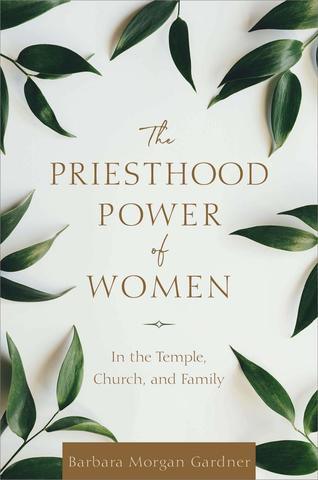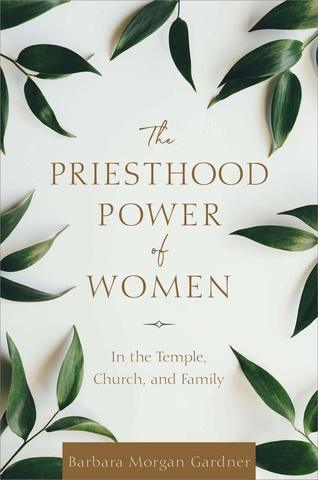President Oaks instructed that “all priesthood authority in the Church functions under the direction of the one who holds the appropriate priesthood keys.”
The experience associated with my mission call and first assignment as a missionary has been a poignant lesson to me regarding this principle. From as early as I could remember, my desire always was to serve a full-time mission for the Church. When I was a young BYU student, the desire became even stronger, especially as I watched my male friends receive their mission calls. During one semester, however, I had a very difficult roommate experience. Up to this point, I had felt that, although I wasn’t perfect, I basically got along with most people. It never occurred to me that having a companion could be a difficult thing. During my mission interview with my stake president, who was my father, he asked me where I wanted to serve. Just months before, one of these roommates that we lived with had received a mission call to the California Los Angeles Mission. She was assigned to serve at the visitors’ center, and to proselytize and teach the gospel in Spanish. Although we were still good friends, the roommate situation was difficult, and I wanted to stay as far away from those memories as possible. In response to my father’s question, as a well-taught young adult, I simply responded that I would go anywhere the Lord wanted me to go. Perhaps against protocol, my stake president then asked, “Where do you not want to go?” Without a moment of hesitation, I blurted out, “The only place I do not want to be assigned is to the Los Angeles California Temple visitors’ center, speaking Spanish.”
To this day, my father still assures me that he did not write anything of the sort on my papers. In fact, he said he selfishly suggested that I be sent to Wales, as that would allow me to be among our ancestors. My six older siblings who served missions before me were all called on foreign missions. I put on my paper that I desired to serve “foreign” as well. A few weeks later, I was speaking at a stake youth fireside and my parents handed me the envelope in front of all of the youth and leaders. I opened it immediately, but anxiously, as I knew by the weight that my call likely wasn’t foreign. Having read many mission calls, I knew exactly where to turn my attention. Before even having a chance to read the letter out loud, I began to cry. Everyone in the audience thought I was shedding tears of joy, but my parents knew otherwise. Standing close beside me, my dad wisely asked if I was okay. I whispered, “I just received my worst nightmare!”
“Los Angeles?” he asked. As I nodded, he continued, “Visitors’ center?” Tears continued to stream down my cheeks. “Spanish speaking?” I could tell he was just as shocked as I was distraught! I nodded my head again, and he looked at me somewhat bewildered. I gained my composure and read the letter out loud. Following lots of pats and hugs by youth and leaders, I found a quiet place and began to read my patriarchal blessing. The Spirit confirmed to me that although I did not understand the reason for this call, the call was assigned by an Apostle who held apostolic keys, and this was the Lord’s will for me.
A couple of months later, my father, still serving as the stake president, became extremely ill and would be unable to set me apart as a full-time missionary. With other personal circumstances, including my sister being diagnosed with stage 4 breast cancer and the diagnosis giving her only six months to live, I began to question my choice to serve a mission. With my dad being ill and unable to set me apart or even give me a father’s blessing, I reached out to my bishop. We discussed my decision briefly. Then, turning the key in my behalf, he told me he felt that the Lord desired that I not postpone my mission. He then gave me a blessing, which stated, among other things, that while I was away serving the Lord, He would bless my family, and I would return to see them whole. That He would perform miracles in my family’s behalf as a result of my service. That the timing of my calling was critical for the companions I would have and the people we would teach.
Later that evening, the bishop returned to give my father a blessing. He blessed my father, among other things, that he would be healed long enough to set me apart as a full-time missionary. That evening, my father, serving as my stake president, who held priesthood keys of presidency, stood healthy and strong behind me, with my bishop as his companion, and set me apart as a full-time missionary. The next morning, my parents dropped me off at the airport.
After spending six weeks at the Provo Missionary Training Center, I was off to the California Los Angeles Mission. Greeted by the mission president and his wife, all of the new missionaries and all of our future trainers met together in one of the large rooms of the visitors’ center. I’ll never forget how our mission president explained to us that never before had he received such clear inspiration regarding companionships. He then started calling off new missionaries and their trainers. My name was announced, and the name of my old roommate was announced as my trainer. We met each other in the room, hugged, and for the next while, as we drove to our new area, made amends for any negative experiences or feelings we had previously had. The Lord, through an Apostle, stake president, bishop, and mission president, who all held priesthood keys of presidency, resolved the only relationship trouble I had ever had to that point. The first two doors we knocked on were opened to us. Two weeks later, both individuals who had greeted us at the door were baptized. One year later, almost to the date, both of these individuals and their families entered the Los Angeles California Temple, received their endowments, and were sealed to their families. My old roommate, companion, dear friend, and I were there to witness the experience.
About six months later I returned home to find my sister, although bald, still alive and thriving with her new baby and husband, and my father, although now released as a stake president and retired from his profession, healthy and strong. The man who had been my bishop when I left was now my stake president. With the keys he then held, he released me from full-time missionary service. I returned to BYU to become roommates once again with my past roommate, companion, mentor, and dear friend. All of this was made possible through the priesthood keys of presidency used in behalf of those for whom the key holders had stewardship.
Lead image from Getty Images
Learn more from Barbara Morgan Gardner in The Priesthood Power of Women.
In The Priesthood Power of Women, author Barbara Morgan Gardner explores teachings of the living prophets and scriptures to increase our understanding of God's power as it operates in the temple, the Church, and the family. Her well-documented research demonstrates that women have more authority and power in all those settings than they may have previously supposed.
In a compelling invitation to action, the author writes, "How will we as women use the priesthood power we have been endowed with in our homes, communities, and world if we don't know what it is, let alone how to call upon it?" This powerful book will help all members, especially women, more completely understand God's power and take full advantage of the powers, blessings, and privileges available to them in this mortal journey.




